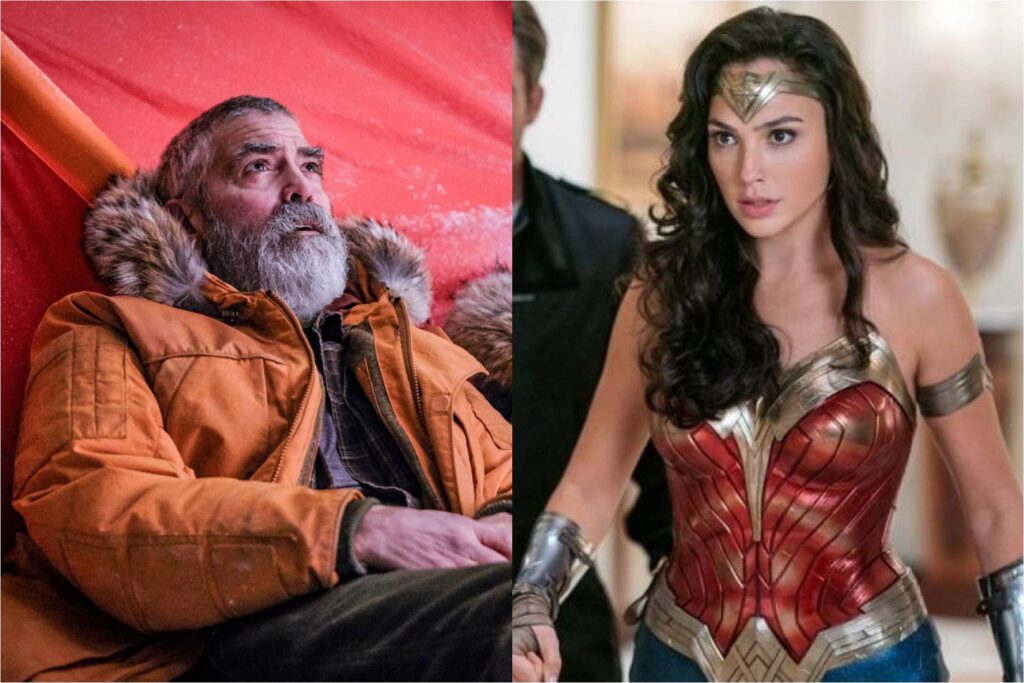
On Christmas Day 2019, I attended one of the most memorable double features of my life: Greta Gerwig’s Little Women, followed by the Safdie Brothers’ Uncut Gems. Forget the visual and verbal audacity of both pictures (not to mention their, er, tonal differences); what I remember most now is the sensation of sitting in a jam-packed auditorium. Neither of those films is conventionally crowd-pleasing, but I don’t think I’m manufacturing a memory when I recall the communal thrill that swept through the audience when Saoirse Ronan delivered an impassioned speech, or when Adam Sandler placed yet another dubious bet. What could better distill the holiday spirit—the anticipation, the laughter, the shared cheer—than watching a movie with total strangers?
Suffice it to say that Christmas Day 2020 unfolded a little differently. But even though the COVID-19 pandemic prevented me from spending my holidays at the movie theater, it didn’t prevent me from spending it watching movies. The clear highlight of the season was Pixar’s Soul, which I’ve already reviewed, but Christmas also brought us two other high-profile streaming releases: Wonder Woman 1984 (on HBO Max) and The Midnight Sky (on Netflix, and technically released on December 23). Both have received fair-to-middling reviews, though I’d argue that one is rather underrated.
Let’s start with Wonder Woman 1984, the sequel to Patty Jenkins’ 2017 smash hit. The first Wonder Woman was such a happy improvement on the prior DCEU productions—replacing dour visuals and glowering heroes with bright colors and winning characters—that it managed to disguise some of its own flaws, in particular its blurry choreography and its familiar overreliance on tired special effects. WW84, as it’s officially titled onscreen, is in most respects a considerable downgrade from its predecessor; its plot is pathetic, its themes are trite, and its climax is insufferable. But until its especially dreary final act, it does represent an improvement in one important respect: Jenkins’ facility with action.
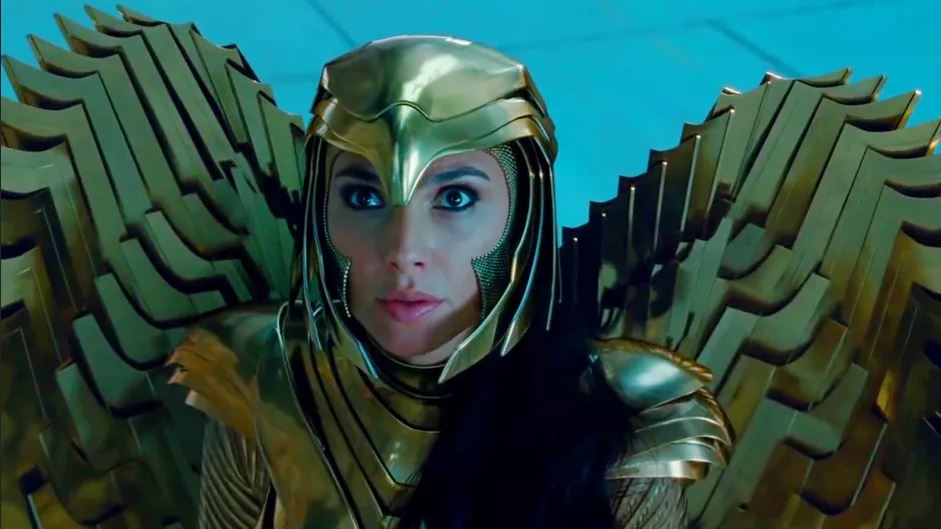
Consider the movie’s playful opening sequence, a flashback that finds a young Diana (Lilly Aspell) competing in an Olympics-style competition against her much older Amazonian brethren. It’s a very silly scene that has nothing to do with the plot—which is arguably a blessing, given how quickly the film’s narrative nosedives—but it’s plucky and springy, with coherent staging and an agreeable sense of propulsion. Once Gal Gadot resumes her role as the title character, Jenkins emphasizes the actor’s natural grace and athleticism; an early melee in a mall (remember, it’s 1984!) capitalizes on the setting’s open spaces, while a later fracas in the desert underlines Diana’s strength and speed without overwhelming viewers with excess clutter. (In a nifty touch, Diana now routinely wields her famous Lasso of Truth as an actual weapon as well as an antique polygraph.)
Unfortunately, the story that inspires these sequences is an unappetizing stew of undercooked ideas and overheated clichés. (Jenkins wrote the script with Geoff Johns and Dave Callaham, replacing the original’s Allan Heinberg.) A good story isn’t essential to the functioning of a good superhero picture, but Wonder Woman 1984 hamstrings itself by thrusting Diana into a tedious, by-the-book tale of ill-gotten power and megalomaniacal villainy. The bizarre, Aladdin-adjacent setup involves a charlatan named Maxwell Lord (Pedro Pascal) who acquires a magical stone that allows him to grant wishes but which also lets him extract a toll from his supplicants, thereby paving his road to world domination.
Or something. Again, that this makes very little sense isn’t fatal; comic-book movies aren’t designed to make sense. The problem is that Diana herself feels incidental to the larger story; her central values of faith (in humanity) and belief (in herself), which were so crucial in animating the first film, are essentially irrelevant here. Any generic superhero could be drafted to combat Lord’s standard-issue lust for power; Wonder Woman just happens to show up because the title bears her name.
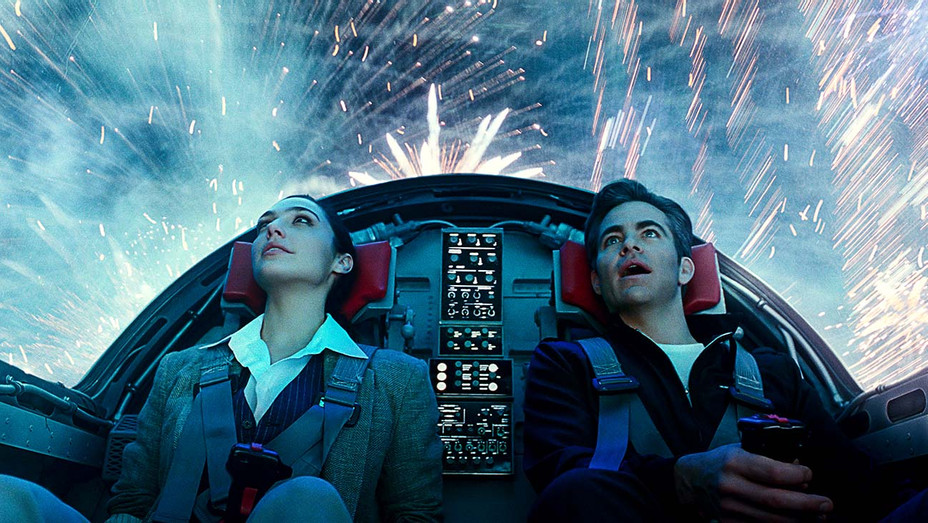
Perhaps that’s why the screenplay contrives to resurrect Steve Trevor, the World War I fighter pilot played by Chris Pine who died at the end of the first film. Or maybe Warner Bros. simply wanted to reunite two impossibly attractive actors. It inevitably cheapens Steve’s prior sacrifice either way, but it’s still an understandable move; Gadot and Pine continue to flash strong chemistry together, and their affectionate rapport remains the franchise’s strongest asset. Their shared scenes—a camera pivot during a dance, an illicit excursion that basks in the thrill of flight, a nighttime stroll in the shadow of the Washington Monument featuring Gadot in a stunning white dress—are where Jenkins is most plainly in control of her material.
Yet too often the reverse is true—the sense that the commercial imperatives of the blockbuster are dictating the terms of the story and the behavior of the characters. Obstacles emerge, foes are dispatched, and stale platitudes are dispensed as though they’re pearls of wisdom, yet nowhere does any authorial personality assert itself. (Malls and leggings aside, Jenkins strangely fails to capitalize on the time period; the soundtrack, for example, is inexplicably devoid of ’80s pop tunes.) By the time Diana is trading computer-assisted blows with a crazed colleague (Kristen Wiig), the miasma of typicality has become suffocating. It’s time for the superhero genre to wish for something else.
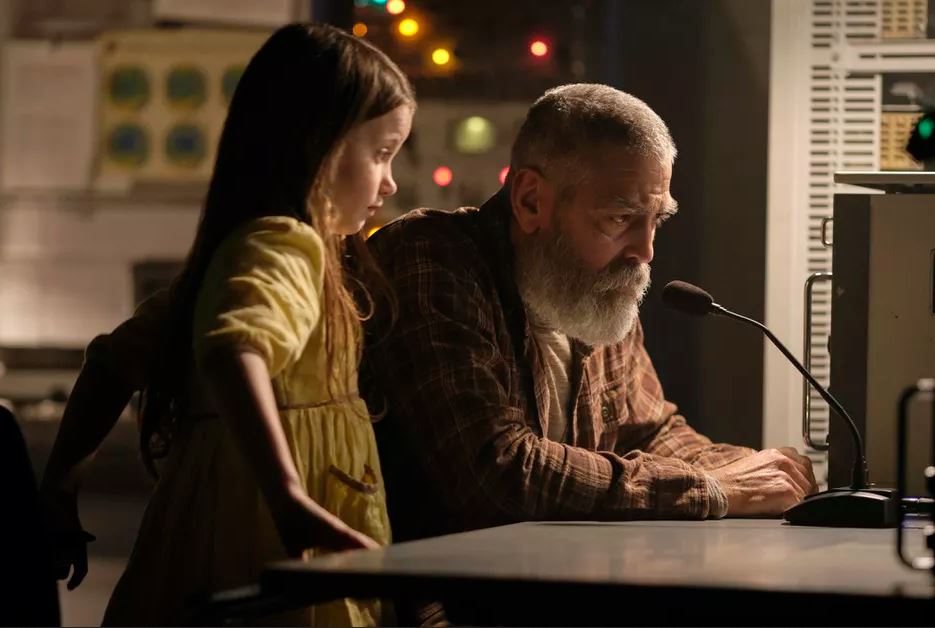
In empirical terms, The Midnight Sky is a much smaller movie than Wonder Woman 1984, though it carries its own sense of quiet grandeur. It’s the latest directorial effort from George Clooney, whose once-promising career behind the camera short-circuited with a pair of recent duds: The Monuments Men (which is genuinely terrible) and Suburbicon (which isn’t entirely terrible but is far from good). His new picture is a more solemn and contemplative affair, and while it’s decidedly imperfect—both in executing its uneven action and in conveying its obvious sentimentality—it’s also surprisingly absorbing and tender. Clooney may never be as good a director as he is an actor, but here he at least exhibits a control of the medium—and a corresponding confidence in his storytelling—that had lately eluded him.
Written by Mark L. Smith (adapting a novel by Lily Brooks-Dalton) and set in 2049 (no, not that one), The Midnight Sky is essentially two movies in one, and they’re both classical stories of endurance and survival. The ground-bound edition centers on Augustine (Clooney), a brilliant astronomer who’s dedicated his career to discovering habitable life on other planets. He’s also terminally ill, which doesn’t much distinguish him from the rest of the population, given that an unspecified plague is sweeping the globe and threatening humanity with extinction. (Obviously, this plot point lends the film a frisson of unnerving topicality, though the screenplay wisely keeps the details vague.) As everyone else takes useless refuge underground, Augustine resolves to remain in an observatory in the Arctic Circle, ostensibly alone until he discovers a young girl (Caoilinn Springall) who appears to have been inadvertently abandoned. Meanwhile, millions of miles across the galaxy, the spacecraft Aether—a reconnaissance vessel led by Sully (a reliably good Felicity Jones)—is returning to Earth, eager to report promising news about a moon orbiting Jupiter. As Augustine and his new moppet companion resolve to trudge across the frigid tundra to a more advanced facility, the Aether’s crew is endangered by equipment failure and asteroid fields.
The connection between these two seemingly disparate journeys isn’t particularly difficult to guess. But while The Midnight Sky blatantly telegraphs its ultimate reveal early on, its predictability doesn’t spoil its pleasures. In relaying a big science-fiction story with gentleness and restraint, Clooney has made a sort of intimate epic—a film that traffics in high concepts and sports a bold scope but which is nevertheless rooted in small details and recognizable characters. It’s the kind of movie that pauses for a food fight between a cranky adult and a wide-eyed child, and that has its astronauts perform perilous repairs while singing along to “Sweet Caroline”.
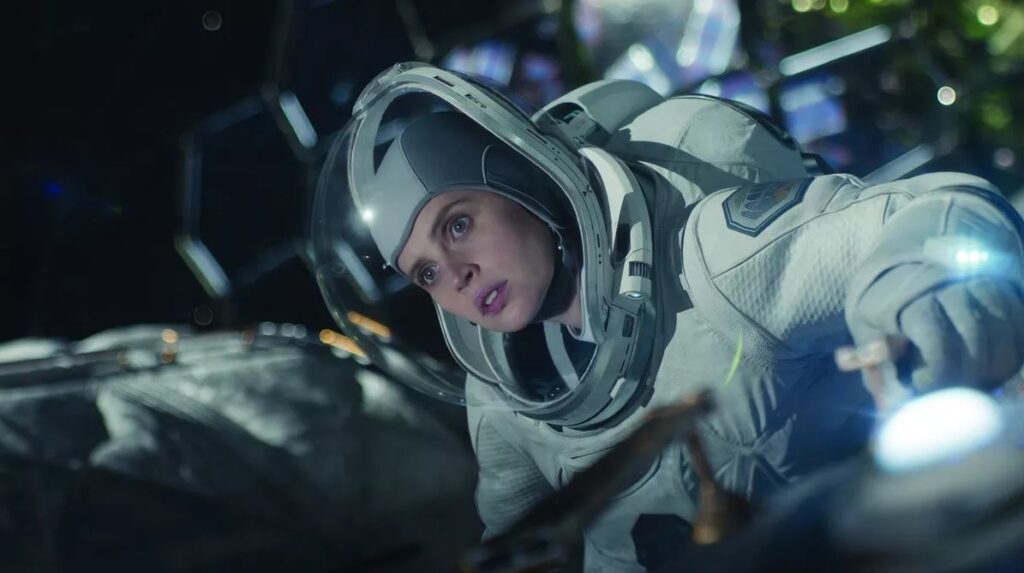
In fact, it’s the bigger moments that expose Clooney’s limitations as a filmmaker. He understands pacing and cutting, but he struggles to invest his set pieces with the proper balance of danger and clarity. Augustine’s dusky scramble for dry land following the sudden collapse of his campsite is suspenseful in the abstract, but it’s too dark and muddy to be visually gripping. And while it’s unfair to compare any space-set movie to Gravity, a frantic sequence during a debris storm just doesn’t move the way it needs to, resulting in some awkward stiffness. (That scene does culminate with a killer image, when the removal of an astronaut’s helmet produces thick globules of floating blood.)
Yet for all its clunky staging, and despite—or perhaps because of—its mushy sincerity, The Midnight Sky is a thoroughly enjoyable movie, with competent performances and nimble grace notes. In directing himself, Clooney has all but extinguished his natural charisma, playing Augustine as a heavily bearded skeleton whose life force has been depleted; it’s arguably an overcorrection from his typical star turn, but it mostly works within the context of the story. (His simple, anguished line reading of “I know” represents the film’s emotional apex.) And while the crew of the Aether—in addition to Jones, they’re played by David Oyelowo, Tiffany Boone, Demián Bichir, and Kyle Chandler—initially scan as archetypal disaster-movie fodder (the stoic captain, the wizened vet, the green rookie), they eventually acquire greater dimension, thanks to some clever holograms and Jones’ rock-steady presence.
If The Midnight Sky never quite achieves the devastating catharsis it’s plainly gunning for, it nonetheless feels like a noble effort. Its sheer bigness—its pink-and-purple horizons, its visions of the vast cosmos, its stirring score (from the great Alexandre Desplat)—mingles productively with its undeniably treacly message of perseverance and hope. Maybe that makes it mawkish, but there’s something disarming about its lump-in-your-throat honesty, and something timely, too. How does “Sweet Caroline” go again? Sad times never seemed so sad.
Wonder Woman 1984 grade: C+
The Midnight Sky grade: B
Jeremy Beck is the editor-in-chief of MovieManifesto. He watches more movies and television than he probably should.
